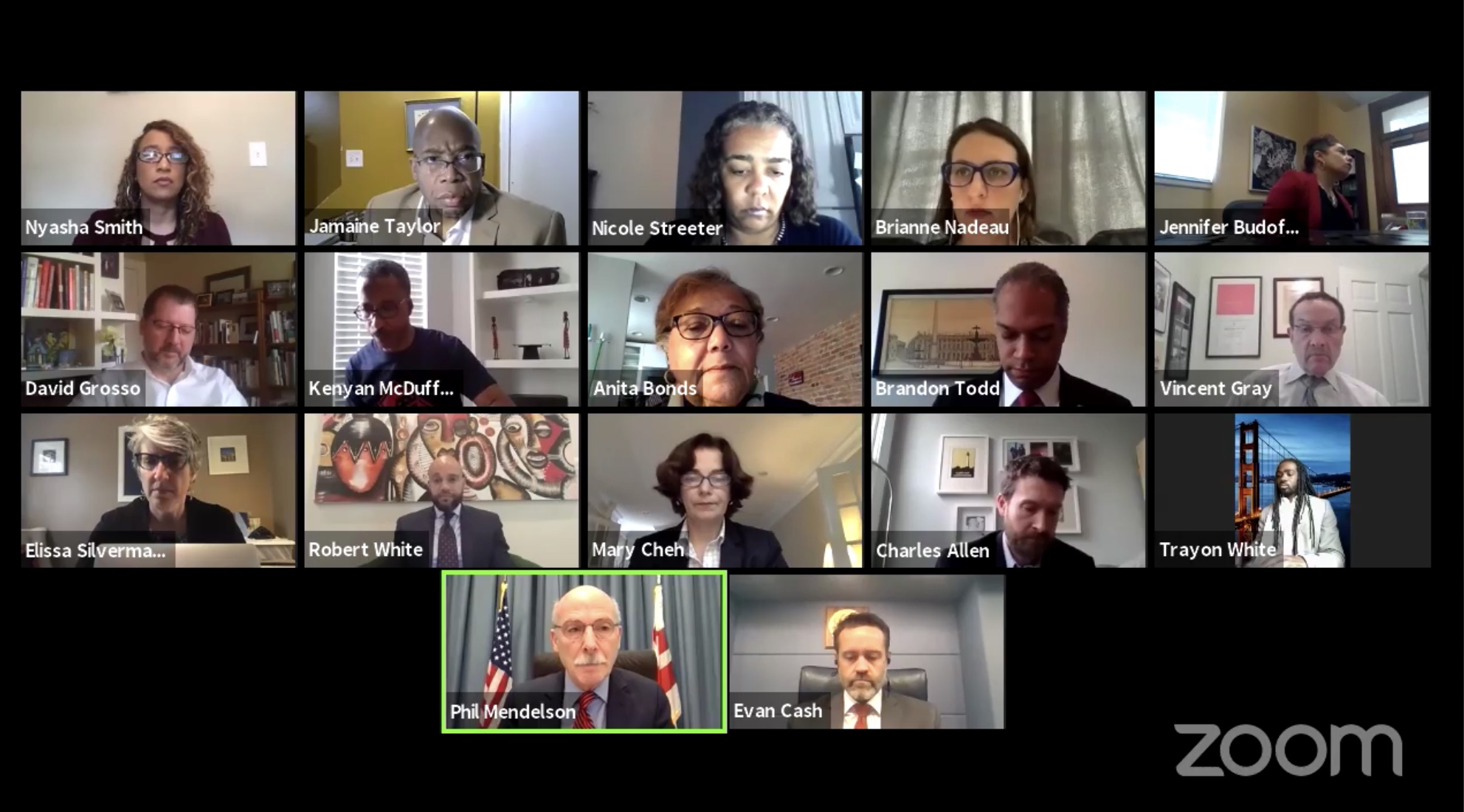Council Unanimously Passes Fourth COVID Response Measure

In what has become the new normal, the Council passed an omnibus COVID response measure at its most recent virtual/online Legislative Meeting. And as has been the case with the past measures, the most recent measure is also a catch-all of COVID response actions.
As with its predecessors, the most recent bill has a number of critical provisions related to housing. Some are refinements of earlier efforts, or attempts to hew more closely to the Council’s original intent. For example, while a prior measure banned evictions during the public health emergency and for 30 days beyond that, it did not stop landlords from filing eviction paperwork (meaning they would be on record and immediately actionable once the emergency and the 30 days has ended). The latest bill bans such filings. Similarly, while an earlier measure created a mandatory mortgage deferment, and a subsequent bill required that the benefits of any such deferment be passed along to tenants, a companion measure to the most recent bill puts into place a ban on foreclosures for non-payment of mortgages. While prior measures instituted a rent freeze (meaning that no rent increases were permitted) and banned late fees, the most recent bill requires landlords to negotiate rent payment plans with their residential and commercial tenants. Additionally, if a tenant pays an amenity fee in addition to rent, and the amenity is closed due to the public health emergency, the landlord is required to refund the amenity fee. Finally, common areas in rental buildings are required to be cleaned regularly during the emergency.
As drafted, the most recent bill included two provisions related to businesses. One was approved, and one was deferred for potential future consideration. Passed was a ceiling on the fee that food delivery apps can charge restaurants. Previously as high as 30 percent, this fee will now be capped at 15 percent for the duration of the public health emergency. Furthermore, payment to delivery personnel cannot be reduced because the fee was reduced. The other provision regarding businesses that was included in the draft measure, but deferred for potential future consideration, would have required insurance companies to consider the present public health emergency a qualifying event under business interruption insurance for businesses of a certain size.
A number of ballot qualification changes were also included in the most recent COVID omnibus bill. In-person circulation of ballot qualification petitions is rendered impossible by proper social distancing, yet it is longstanding practice to require a proportionate display of effort and organization in order for candidates to get their names printed on the ballot. The changes put into place to qualify for the November general ballot (the June ballot, and voting procedures for that election, are already established and were not affected by the recent omnibus) will be different in the following ways: Signature sheets, previously only available for in-person pickup at the Board of Elections offices, will be printable online. Individuals will then be encouraged to print, sign, self-certify, and mail back their sheets to the Board. Since this process requires more effort from the signer, the number of signatures required for ballot qualification has been substantially reduced.
Additional bill provisions include:
- Requiring long-term care facilities to report daily on the number of COVID cases, and COVID deaths, among residents and among staff
- Requiring a weekly written report of COVID cases, and COVID prevention measures, at the DC Jail
- Requiring 50 percent of COVID contact tracing new hires be District residents, and requiring that 25 percent of hires be participants in District job training programs
- Clarifying the terms of the shared work program, under which multiple employees can be left on a business’ payroll for a reduced number of hours, but also receive federal unemployment compensation for the hours their pay was reduced. This avoids a business needing to lay off trained employees, then, after the emergency, seek out and train new employees.
- Allowing for remote notarization and electronic witnessing of official documents, since traditional notarization and witnessing are impractical during the public emergency
The Council’s next Legislative Meeting is scheduled for June 9. However, an Additional Legislative Meeting may be scheduled in two weeks’ time.